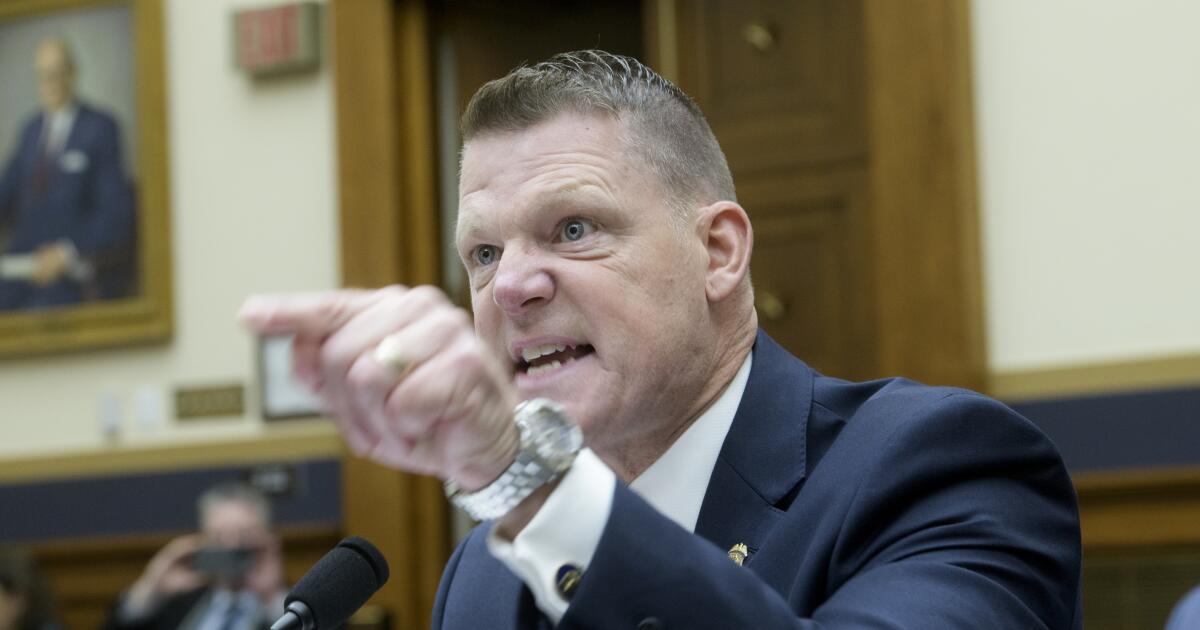WASHINGTON — The acting director of the Secret Service said Thursday that the agency is “reorganizing and reimagining” its culture and how it operates following an assassination attempt against Donald Trump on the campaign trail.
Members of a bipartisan House task force investigating the attempt on Trump’s life pushed Ronald Rowe on how the agency’s staffers could have missed such blatant security vulnerabilities leading up to that day in July.
Rowe promised accountability for what he called the agency’s “abject failure” to secure the rally in Butler, Pa., where a gunman opened fire from a nearby building on July 13. Trump was wounded in the ear, one rally-goer was killed, and two others were wounded.
Another assassination attempt on Trump in Florida two months later contributed to the agency’s troubles.
The task force’s inquiry is one of a series of investigations and reports into the Pennsylvania shooting that have faulted the agency for planning and communications failures. Already, the fallout has included the resignation of the agency’s previous director and changes that increased Secret Service protections for Trump before the Republican won the November election.
During the hearing, Rowe was repeatedly asked by flabbergasted lawmakers how problems so obvious in hindsight were allowed to happen, including communications difficulties between the Secret Service and local law enforcement that help secure events and the building overlooking the rally being left unprotected.
Rep. Jason Crow (D-Colo.) said it was “just wild to me” that at a time of such tech advances in communications that the Secret Service on July 13 was using text messages and emails to communicate in real time about threats.
He also questioned Rowe about the agency’s culture and why so many things went wrong that day “yet nobody said anything.”
Crow mentioned a drone operator who couldn’t get his drone to work and a countersniper positioned where a tree blocked part of the view of the area being scanned for threats. Neither spoke up.
“I’m struck by the lack of that culture,” said Crow, a former Army Ranger. “Why aren’t people saying something? It happened on numerous occasions.”
Rowe said the agency used to have a culture where every agent felt empowered to speak up when they felt something wasn’t right.
“I don’t know where we lost that,” he said. “We have to get back to that.”
Rowe said the agency is putting a much stronger emphasis on training — something that previous investigations noted was lacking — and on doing more regular after-action reviews of events to see what went right and where improvements can be made.
“We are reorganizing and reimagining this organization,” Rowe told lawmakers. He said the agency needs to identify possible leaders much earlier in their careers instead of just promoting people to command positions because they’ve been around for a long time.
Rep. Mark Green (R-Tenn.) said the agency’s conduct during the July shooting seemed almost “lackadaisical.” He said some of the issues that went wrong that day were ”really basic things.”
“It speaks of an apathy or a complacency that is really unacceptable in an organization like the Secret Service,” Green said.
The hearing was largely cordial with members of Congress stressing the bipartisan nature of their work and praising Rowe for cooperating with their investigation even as they pushed him for explanations.
But at one point, the hearing devolved into a heated yelling match between Rowe and Rep. Pat Fallon (R-Texas). Fallon pulled out a photo of President Biden, Trump and others at the Sept. 11 ceremony in New York this year. As Fallon pushed Rowe about why he was at the event, Rowe pushed back, yelling at him not to politicize the 9/11 attacks. Fallon accused him of going to the event to raise his profile in hopes of getting the director’s job.
Trump has not yet named his pick to lead the agency.
This is the task force’s second public hearing and the first time that Rowe has addressed the panel in public. It is scheduled to release a report on its findings and recommendations by Dec. 13.
Chairman Mike Kelly, a Pennsylvania Republican from Butler, said the task force has conducted 46 transcribed interviews, attended over a dozen briefings with agencies and reviewed over 20,000 documents. Members also visited the site of both assassination attempts and went to the FBI’s laboratory in Quantico, Va., to look at evidence.
Rowe said the agency’s internal investigation has identified failures by multiple employees. He noted that the quality of the advance work — the people who go to a location before an event and plan how the Secret Service will protect someone — did not meet agency standards.
“It is essential that we recognize the gravity of our failure on July 13, 2024,” Rowe said. “Let me be clear, there will be accountability, and that accountability is occurring.”
He did not give specific information, including, for example, how many employees might be disciplined or if anyone would be fired.
Many of the investigations have centered on why buildings near the rally with a clear line of sight to the stage were not secured in advance. The gunman, Thomas Crooks, climbed onto the roof of a nearby building and opened fire as Trump spoke.
Crooks was killed by a Secret Service countersniper, and Trump was surrounded by agents and hustled offstage.
In the second assassination attempt, Ryan Wesley Routh is accused of lying in wait for Trump on Sept. 15 in the shrubbery of one of Trump’s Florida golf courses in West Palm Beach, Fla. A Secret Service agent saw the firearm poking through the bushes and opened fire, thwarting the potential attack. Routh never fired a shot.
Santana writes for the Associated Press.
